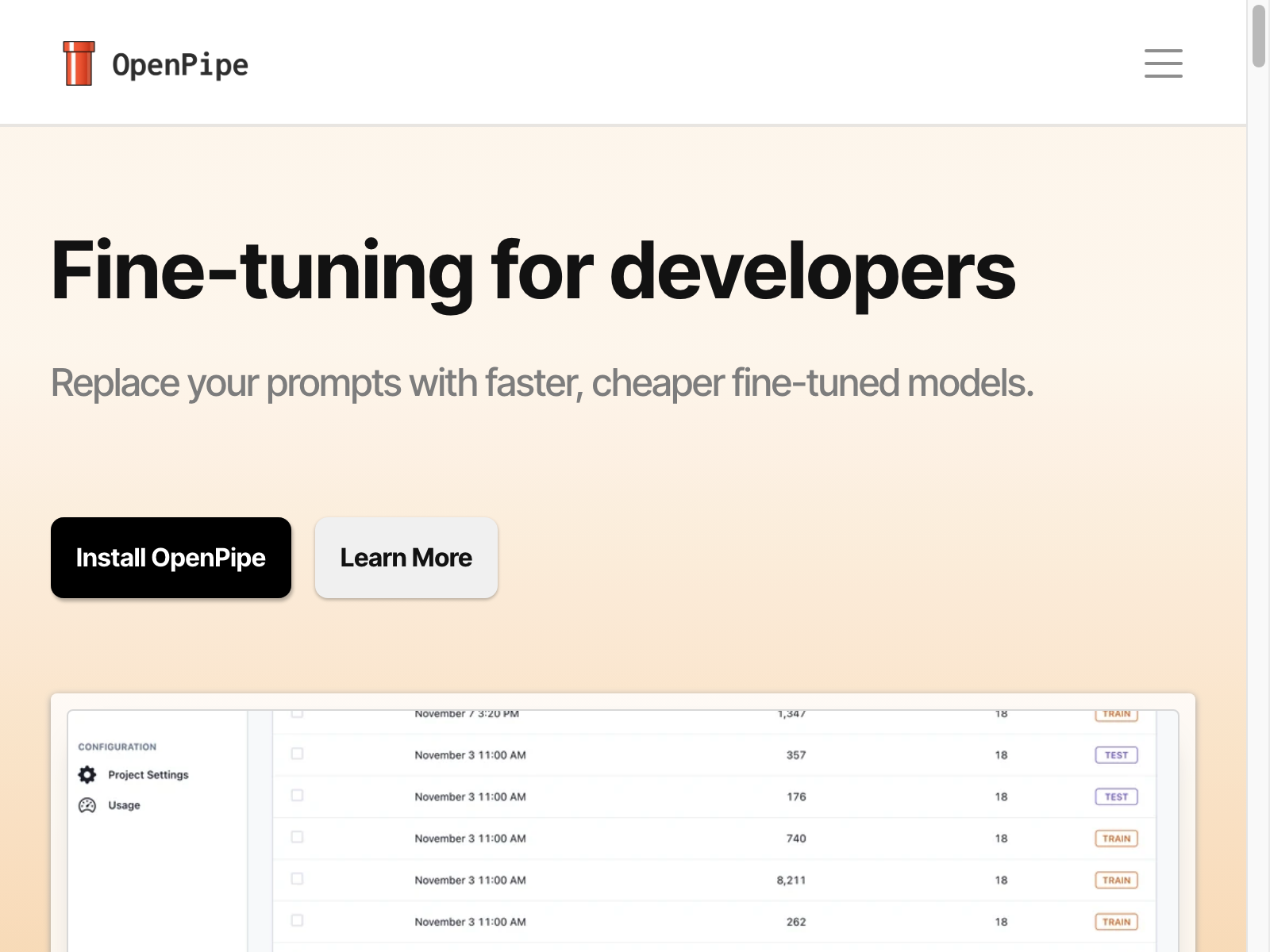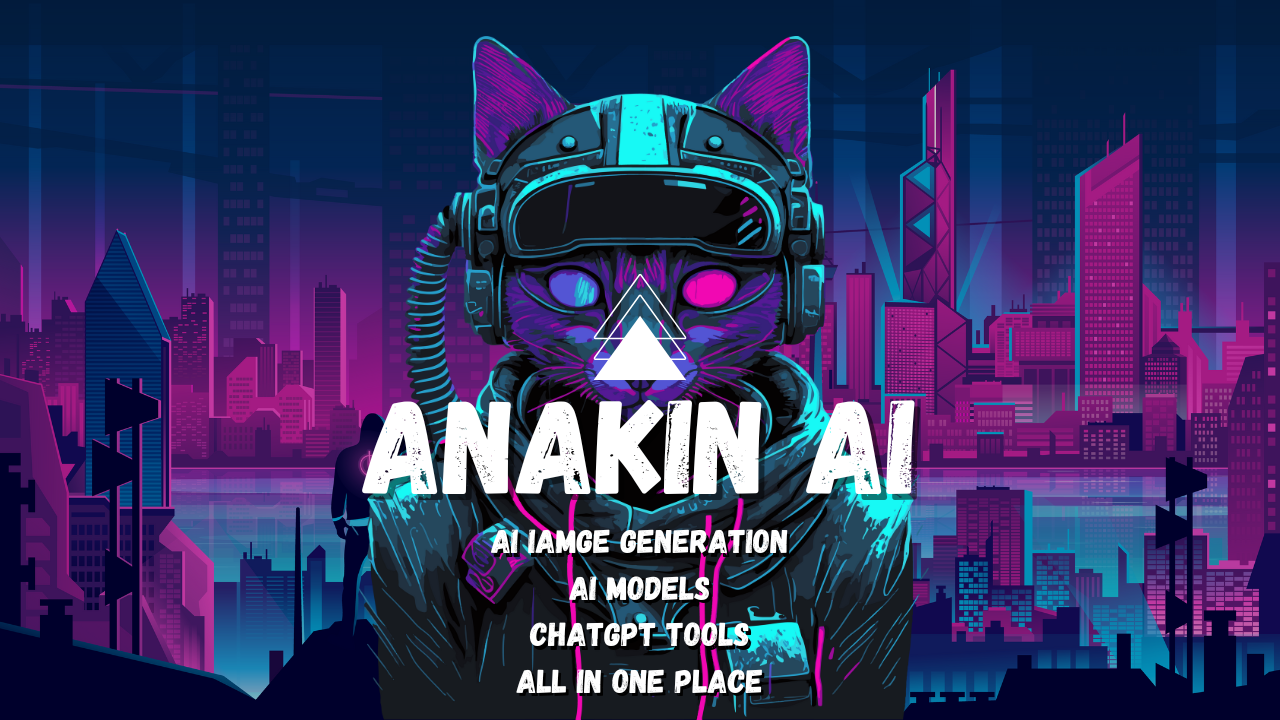Openpipe: Empowering Developers with Fine-Tuned AI Capabilities
Openpipe is an AI tool that offers fine-tuning capabilities specifically designed for developers. With Openpipe, developers can streamline their deployment loop, integrate the tool in just 5 minutes, and start saving time and effort. Openpipe takes a unique approach by prioritizing lower costs without compromising the quality of its AI models. As an open-source tool, it emphasizes collaboration and enables developers to customize and enhance its functionalities.
Published on
Openpipe is a powerful tool that provides developers with the ability to fine-tune AI models according to their specific requirements. This level of customization empowers developers to create more accurate and efficient solutions, saving valuable time and resources. The tool's easy integration process ensures a smooth adoption of Openpipe into existing workflows, allowing developers to quickly leverage its benefits.
One notable aspect of Openpipe is its focus on lowering costs while maintaining high-quality results. By offering an open-source solution, the tool encourages collaboration and knowledge sharing within the developer community. This not only promotes innovation but also allows developers to optimize their AI models without incurring additional costs.
Openpipe is suitable for a wide range of use cases, including natural language processing (NLP) applications, computer vision tasks, recommender systems, sentiment analysis, text classification, and fraud detection.
Key Features
- Fine-tuning: Openpipe enables developers to fine-tune pre-trained AI models, ensuring better accuracy and performance for specific tasks.
- Easy Integration: With just 5 minutes of setup, Openpipe seamlessly integrates into existing development workflows, minimizing disruption and maximizing productivity.
- Open-source: Openpipe is an open-source tool, allowing developers to access and modify the source code, fostering collaboration and customization.
- Cost Optimization: Openpipe prioritizes cost reduction without sacrificing the quality of AI models, enabling developers to achieve impressive results within budget constraints.
Openpipe offers several advantages for developers. Its powerful fine-tuning capabilities allow for highly customized AI models, improving accuracy and performance. The easy integration process ensures a seamless adoption of Openpipe into existing workflows, minimizing disruption. Furthermore, the open-source nature of Openpipe promotes collaboration and knowledge sharing, allowing developers to customize and enhance the tool according to their specific needs. The emphasis on cost optimization is also a major benefit, as it allows developers to achieve impressive results within budget constraints.
However, there are a few considerations to keep in mind when using Openpipe. It does require a basic understanding of AI models and fine-tuning techniques, so developers should have some familiarity with these concepts. Additionally, Openpipe's graphical user interface (GUI) for configuration is limited, which may require developers to rely more on manual configuration.
Pricing details for Openpipe can be found on their official website. They offer flexible pricing plans tailored to different needs and requirements.
Here are some frequently asked questions about Openpipe:
-
Can Openpipe be used with different programming languages? Yes, Openpipe supports multiple programming languages, including Python and Java. This allows developers to use the tool in their preferred language and integrate it seamlessly into their existing projects.
-
How does fine-tuning improve the performance of AI models? Fine-tuning allows developers to adapt pre-trained AI models to specific tasks or domains, resulting in improved accuracy and performance. By fine-tuning, developers can enhance the model's ability to handle specific input patterns or output requirements.
-
Is Openpipe suitable for both small and large-scale projects? Yes, Openpipe is scalable and can be employed in projects of varying sizes. Whether it's a small proof-of-concept or a large-scale production system, developers can leverage Openpipe's fine-tuning capabilities to enhance their AI models.
-
Can Openpipe integrate with popular machine learning frameworks? Absolutely. Openpipe can integrate with popular machine learning frameworks such as TensorFlow and PyTorch, making it compatible with a wide range of existing AI projects and workflows.

